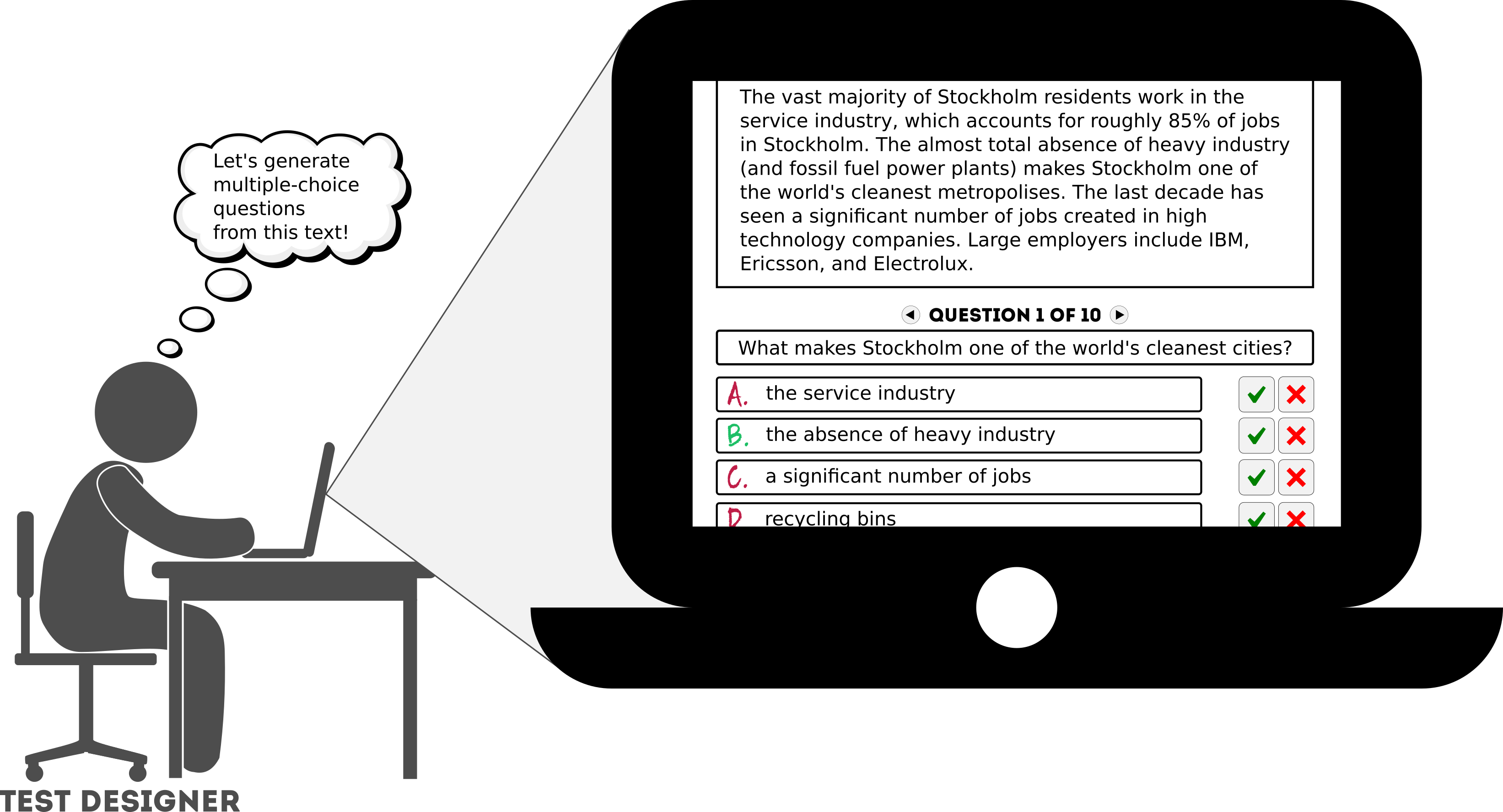The SWE-QUEST project
 In the SWE-QUEST project we are developing a demo system that, given a text, automatically generates multiple-choice reading comprehension questions on the text, as shown in the picture.
In the SWE-QUEST project we are developing a demo system that, given a text, automatically generates multiple-choice reading comprehension questions on the text, as shown in the picture.
The system generates the whole multiple-choice question: both the question itself, and the answer alternatives, using a neural-network-based generative model. Although the example shown in the picture is given in English, our demo system will work for Swedish text. The project will push the state-of-the-art in natural language generation.
The system is intended to be used by teachers of SFI (Svenska för invandrare), in order to facilitate test construction and the development of teaching materials, but can also be used for self-studies of Swedish. The research carried out within this project can potentially thereby have huge beneficial societal effects: 20% of the Swedish population is born outside Sweden, and many immigrants are struggling to master the Swedish language, and therefore have problems finding a job. The SFI classes are often too big to allow the teacher time to adapt the level of teaching to cater to each student individually. The tool developed within this project could be highly useful to teachers, who could rapidly and easily generate a number of suggested multiple-choice questions on a text material, to be used in teaching and assessment. The project will engage active teachers of SFI, who will use the tool and assess the usefulness of the generated questions.